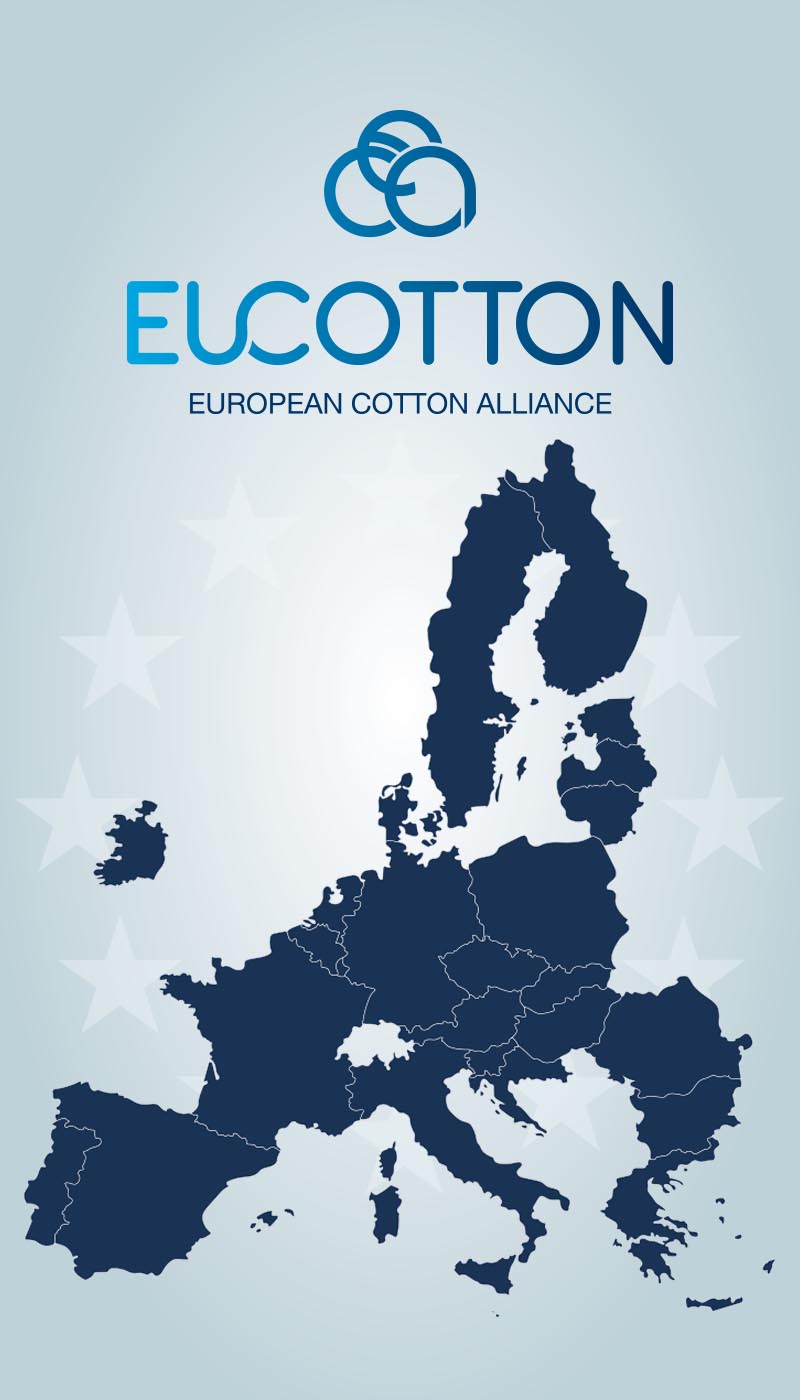European Cotton Alliance (ECA)
EUCOTTON initiative is driven by the European cotton Alliance (ECA), a group of cotton associations and federations located in Greece and Spain, countries where European cotton is produced. Its headquarters are in Larissa, Greece, with a branch office in Seville, Spain.

ECA was formed in February 2019 with the participation of several associations representing the textile production and industry:
The Greek Interprofessional Cotton Association (DOB)
The Association of Spanish Cotton Ginners of the South (ADESUR)
The Hellenic Cotton Ginners and Exporters Association (HCA)
The Federation of Greek Textile Manufacturers (SEVK)
The Spanish Cotton Ginners Association (AEDA)
The National Cotton Centre in Spain (CAN)
The Interprofessional Cotton Association of Spain (Asociación Interprofesional del Algodón de España)
EUROCOTON, the European Association of Textile Manufacturers in Brussels
ECA MISSION

The aims and objectives of ECA include, among others:
To process, form and express the position of its members towards the practice and the strategies developed in the cotton production and cotton industry and in all the relevant sectors.
To represent its members following a unanimous decision of General Assembly (GA) towards any authorities, organs, agencies, and any other institutions of the European Union, with the view to support and promote the economic, social and any other interests of the members of the Grouping. In order to legitimately represent the Grouping members in such issues, Representative(s) has to be handed a written permission by GA.
To represent its members following a unanimous decision of GA towards any international, transnational, and national organizations, authorities, organizations and take part in meetings, for a and any form of relevant events of such interest. For a legitimate representation on such occasions, Representative(s) must be handed a written permission by GA.
To contribute to the harmonization of the European policies and practice in relation with cotton production in the whole of the EU member states.
To promote and increase the cotton production in the EU through sustainable pro- and environmental-friendly practices and traceability of production.
To develop and establish a European cotton trademark for the identification and promotion of European cotton with the view to promoting and granting its use to cotton producers or textile industries in the EU, which may lead to the recognition, protection, and promotion of the European cotton.
To promote the use of European cotton among professionals and consumers, both within the EU and internationally.
